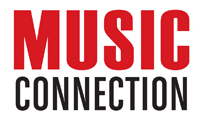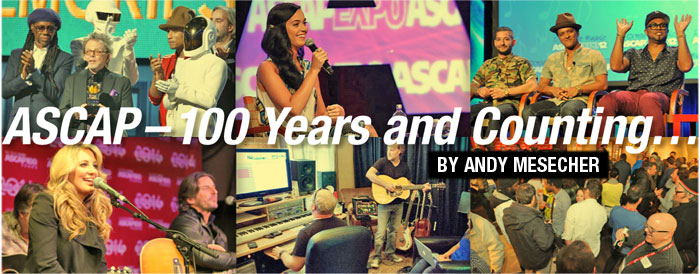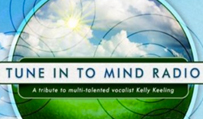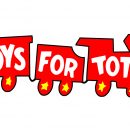It’s difficult to imagine it today, but in the United States before 1914, songwriters were rarely compensated for the performance of their works. While a singer/guitarist may have made $5 at the local dive, the songwriter who wrote the ditty? Squat. That is, until Feb. 13, 1914 (just months before the outbreak of the First World War). On that day, in a meeting at the Hotel Claridge in N.Y.C., a group of prominent, visionary music creators established the country’s first Performance Rights Organization (PRO)—the American Society of Composers, Authors and Publishers (ASCAP).
The core idea was to protect (primarily) the writers and publishers associated with New York’s “Tin Pan Alley”—an area of Manhattan well known for its plethora of music publishers and songwriters—in order to ensure compensation for the use of their works. Within 10 years, ASCAP’s key members had the ears of U.S. Congressmen, successfully lobbying for stricter copyright laws on the airwaves. The result was the birth of radio royalty payments.
Since that time, ASCAP has amassed a membership of more than 500,000 composers, songwriters, lyricists and music publishers whose publishing rights they protect. (Membership is free.) One reason for such consistent success, according to ASCAP President, Paul Williams, is its unique leadership. You see, since the organization’s inception, ASCAP has maintained a songwriter/music creator as its president, not only giving members comfort in a like-minded leader, but also to bring a uniquely credible advocate to Capitol Hill. Williams is not only a songwriter known for classics like “Evergreen” and “Rainy Days And Mondays,” but he also won a recent Grammy for his collaboration with EDM powerhouse, Daft Punk.
“When [an established songwriter] walks into a legislator’s office as president of ASCAP, he has a connection [with the legislators] through the music,” Williams explains. “I’ll walk into an office and whether it’s the Love Boat theme or ‘We’ve Only Just Begun,’ the legislator thinks, ‘I’m talking to the songwriter [not necessarily the artist I relate the song to]. I get it.’”
Another reason for ASCAP’s long-term success is its ability to remain relevant in an ever-evolving music industry. “We are all huge fans of technology,” exclaims Williams. “Who would not love a technology [like music streaming] which has 70 million subscribers listening to our music? We want Pandora to be a huge success; we want everybody who delivers music to be a success.”
But as most businesses are quick to learn, you either adapt to the technology beast or your clients will be swallowed up by competitors. In order for ASCAP to remain progressive, according to Williams, more legislation must now take place.
You see, as ASCAP quickly grew through the 1930s and ‘40s, legislation was agreed upon (a Consent Decree) between the Justice Department and ASCAP to allow the formation of competing PROs. And like all quickly growing services, ASCAP has watched a rise in competition from PRO rivals Broadcast Music Inc. (BMI) and SESAC. But according to Williams, ASCAP is now forced to operate with “one hand tied behind our back” due to such an antiquated decree still in effect.
“I think we operate under [legislation that is over] 70 years old, that was created—between the government; the Justice Department and ASCAP—based on the concept of ASCAP being a ‘monopoly,’” says Williams. “We are hardly a monopoly, between BMI and others working to offer platforms for similar services.” Williams quickly points out, though, that the current situation has not been a hindrance to what ASCAP is able to provide its members.
Along with fighting on Capitol Hill for the rights of songwriters and collecting royalties for its members, ASCAP offers an annual event known as the ASCAP “I Create Music” Expo. At this intensive three-day music conference held at the Loews Hollywood Hotel, attendees are able to make industry contacts, watch keynote presentations and attend Q&A’s with songwriter legends (such as Quincy Jones being interviewed by Justin Timberlake), etc. This cutting-edge event also hosts a number of exhibitor booths for vital music-career companies such as Music Connection that can help new artists take their work to the next level. The company also hosts regular events at SXSW, Sundance Film Festival and various industry-related events.
After 100 years of historic accomplishments, what can be expected of ASCAP in the coming century? Considering the onslaught of technological innovations, revenue opportunities and legislative obstacles that will likely appear, Williams remains adamant that ASCAP will find solutions. “For 100 years,” he explains, “ASCAP has been the leader in this amazing process of licensing and collecting our music. When radio came out, people thought, ‘Yeah, but that’s not a performance. That’s an electronic transmission!’ ASCAP was there to step up to the plate and say, ‘No, that is a performance.’”
The confidence in Williams’ voice makes it clear that ASCAP intends to excel at protecting its members—and collecting their royalties—for many years to come.
For more, Contact Bobbi Marcus PR, bobbi@bobbimarcuspr.com













